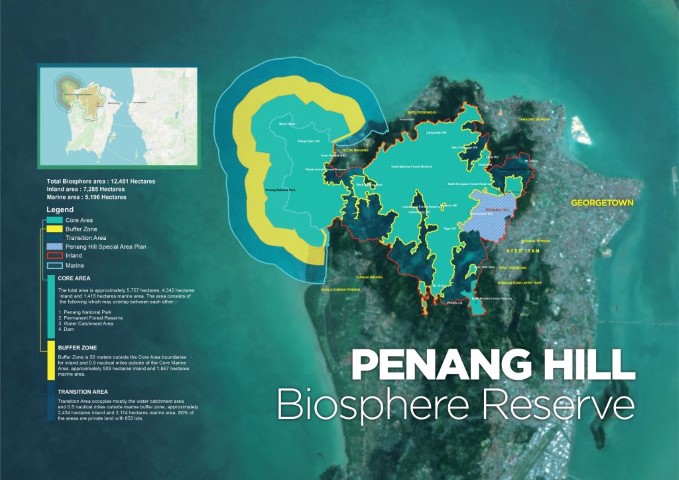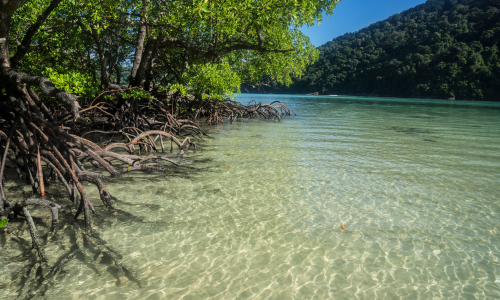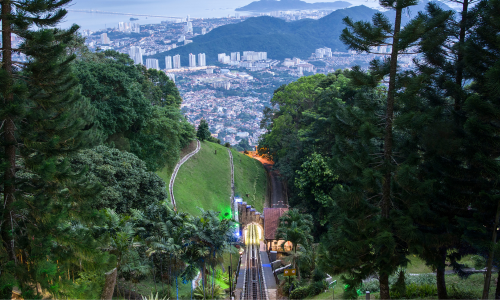Tourist Attractions
Tourist Attractions
Scenic Penang Hill Experience

Penang is a popular tourist destination in Malaysia, attracting people from around the world with its incredible cultural heritage, lively street art, mouthwatering cuisine, and stunning natural landscapes.
PHBR is fully aligned with the Sustainable Development Goals and supports the United Nations’ initiative to promote eco-friendly, responsible, and sustainable tourism.
As defined by the World Tourism Organization, sustainable tourism considers current and future impacts on the economy, society, environment, visitors, industry, and host communities.
The United Nations General Assembly declared 2017 the International Year of Sustainable Tourism for Development. It creates jobs, promotes local culture and products, and closely monitors the impact of development on various aspects, such as the environment, economy, and communities.
PHBR supports sustainable tourism by cultivating environmental awareness, protecting and conserving biodiversity and ecosystems, celebrating cultural diversity, and enhancing the well-being of local communities for a sustainable future.
One of PHBR’s objectives is to promote ecotourism as a responsible and sustainable form of nature tourism.
The International Ecotourism Society (TIES) defines ecotourism as “responsible travel to natural areas that conserves the environment, sustains the well-being of local people, and involves interpretation and education.”
Ecotourism can be defined as responsible travel that focuses on experiencing and learning about natural environments and local communities. Non-invasive in nature, ethical travel aims to support sustainable initiatives through low-impact and responsible consumption.
Ecotourism helps protect and encourages stewardship of natural and cultural resources and boosts the local economy.
These ecotourism sites offer visitors the opportunity to explore the beauty and diversity of the rainforest while promoting sustainable tourism practices that support the conservation of both the ecosystem and the conserved heritage.
By engaging in ecotourism activities within the biosphere reserve, visitors can learn about the region’s unique flora and fauna and support local conservation efforts.
Tourist Attractions
Scenic Penang Hill Experience
Penang is a popular tourist destination in Malaysia, attracting people from around the world with its incredible cultural heritage, lively street art, mouthwatering cuisine, and stunning natural landscapes.

PHBR is fully aligned with the Sustainable Development Goals and supports the United Nations’ initiative to promote eco-friendly, responsible, and sustainable tourism.
As defined by the World Tourism Organization, sustainable tourism considers current and future impacts on the economy, society, environment, visitors, industry, and host communities.
The United Nations General Assembly declared 2017 the International Year of Sustainable Tourism for Development. It creates jobs, promotes local culture and products, and closely monitors the impact of development on various aspects, such as the environment, economy, and communities.
PHBR supports sustainable tourism by cultivating environmental awareness, protecting and conserving biodiversity and ecosystems, celebrating cultural diversity, and enhancing the well-being of local communities for a sustainable future.
One of PHBR’s objectives is to promote ecotourism as a responsible and sustainable form of nature tourism.
The International Ecotourism Society (TIES) defines ecotourism as “responsible travel to natural areas that conserves the environment, sustains the well-being of local people, and involves interpretation and education.”
Ecotourism can be defined as responsible travel that focuses on experiencing and learning about natural environments and local communities. Non-invasive in nature, ethical travel aims to support sustainable initiatives through low-impact and responsible consumption.
Ecotourism helps protect and encourages stewardship of natural and cultural resources and boosts the local economy.
These ecotourism sites offer visitors the opportunity to explore the beauty and diversity of the rainforest while promoting sustainable tourism practices that support the conservation of both the ecosystem and the conserved heritage.
By engaging in ecotourism activities within the biosphere reserve, visitors can learn about the region’s unique flora and fauna and support local conservation efforts.

Map & Zonation

Ecosystem

Tourist Attractions

Gallery

Partners

Programmes


